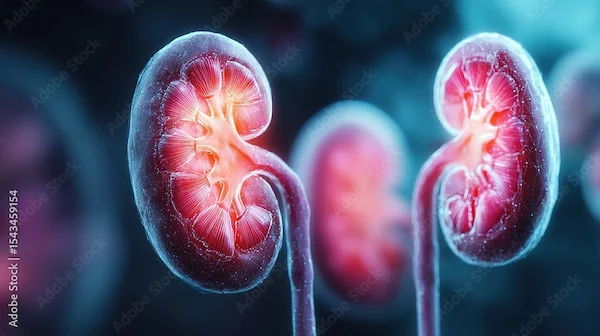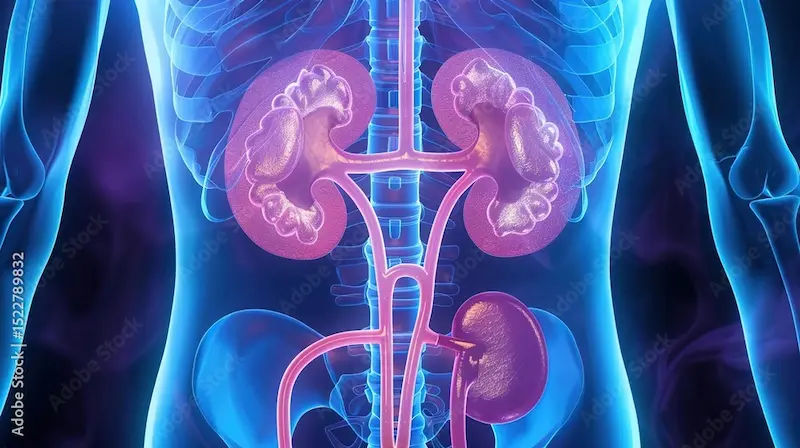Understanding Dialysis: Types and Procedure
Dialysis helps replace kidney function when kidneys fail. Learn the types of dialysis—hemodialysis and peritoneal dialysis—how each works, who needs it, what to expect during treatment, and tips for living well while on dialysis.

Written by Dr. Mohammed Kamran
Reviewed by Dr. Shaik Abdul Kalam MD (Physician)
Last updated on 22nd Aug, 2025

Dialysis is a life-saving medical procedure that helps people whose kidneys are no longer functioning properly. If you or a loved one has been advised to undergo dialysis, it’s natural to have questions and concerns. This article will explain what dialysis is, the different types available, how the procedure works, and tips for managing life while on dialysis.
What is Dialysis?
Our kidneys play a crucial role in filtering waste, excess fluids, and toxins from the blood. When kidneys fail due to chronic kidney disease (CKD), diabetes, high blood pressure, or other conditions, harmful substances build up in the body. Dialysis acts as an artificial replacement for kidney function, helping to:
- Remove waste and extra fluid from the blood
- Maintain safe levels of minerals (like potassium and sodium)
- Regulate blood pressure
Without dialysis, kidney failure can lead to severe complications, including fluid overload, heart problems, and even
life-threatening conditions.
Types of Dialysis
There are two main types of dialysis: hemodialysis and peritoneal dialysis.
1. Hemodialysis
Hemodialysis is the most common type of dialysis. It involves using a machine called a dialyser to filter blood outside the body.
How It Works:
- A surgeon creates an access point (usually in the arm) called a fistula, graft, or catheter to allow blood to flow to the dialyser.
- Blood is pumped through the machine, where it is cleaned and returned to the body.
- Each session lasts about 3–5 hours and is typically done 3 times a week at a dialysis centre.
Pros & Cons:
✔ Effective at removing waste quickly.
✔ Supervised by medical professionals at a dialysis centre.
✖ Requires regular visits to a clinic.
✖ May cause fatigue, low blood pressure, or muscle cramps after treatment.
2. Peritoneal Dialysis (PD)
Peritoneal dialysis uses the lining of the abdomen (peritoneum) as a natural filter. A special fluid (dialysate) is
introduced into the abdomen through a catheter, which absorbs waste and is later drained out.
How It Works:
- A soft catheter is surgically placed in the belly.
- The abdomen is filled with dialysate, which stays for a few hours (dwell time) before being drained.
- This process can be done manually (CAPD – Continuous Ambulatory PD) or with a machine (APD – Automated PD)
at home.
Pros & Cons:
✔ More flexibility – Can be done at home or work.
✔ Fewer dietary restrictions compared to hemodialysis.
✖ Requires daily treatment (4–5 exchanges per day).
✖ Risk of infection (peritonitis) if hygiene is not maintained.
Who Needs Dialysis?
Dialysis is usually recommended when kidney function drops below 10–15%. Common reasons include:
- End-stage renal disease (ESRD)
- Severe kidney damage from diabetes or hypertension
- Acute kidney injury (temporary kidney failure)
Your doctor will assess your condition through blood tests (creatinine, GFR), urine tests, and imaging before
recommending dialysis.
What to Expect During Dialysis?
Before the Procedure
- For hemodialysis, a vascular access (fistula/graft) needs to be created weeks in advance.
- For peritoneal dialysis, a catheter is placed in the abdomen.
During the Procedure
- Hemodialysis: You’ll sit or lie down while connected to the machine. Some people read, watch TV, or sleep during
treatment. - Peritoneal dialysis: You’ll perform exchanges manually or use a cycler machine at night.
Consult Top Nephrologist
After the Procedure
- You may feel tired or weak after hemodialysis.
- Follow dietary guidelines (low salt, potassium, and phosphorus).
- Monitor for signs of infection (fever, swelling, or redness at the access site).
Tips for Living Well on Dialysis
1. Follow a Kidney-Friendly Diet
- Limit salt, potassium (bananas, potatoes), and phosphorus (dairy, nuts).
- Eat high-quality protein (eggs, fish, lean meat) in moderation.
2. Stay Hydrated (But Not Too Much)
- Fluid intake must be controlled to avoid swelling and high blood pressure.
3. Take Medications as Prescribed
- You may need EPO (for anaemia), phosphate binders, or blood pressure pills.
4. Exercise Gently
- Walking, stretching, or light yoga can improve energy levels.
5. Monitor Your Health
- Keep track of blood pressure, weight, and lab reports.
6. Seek Emotional Support
- Dialysis can be stressful—talk to a counsellor or join a support group.
When to See a Doctor?
Contact your healthcare provider if you experience:
- Severe fatigue or dizziness
- Swelling or shortness of breath
- Fever or signs of infection
- Sudden weight gain (fluid retention)
Can Dialysis Be Avoided?
In some cases, early-stage kidney disease can be managed with:
- Medications to control blood pressure and diabetes
- Lifestyle changes (healthy diet, quitting smoking)
- Kidney transplant (an alternative to long-term dialysis)
However, if kidney function is severely damaged, dialysis becomes necessary for survival.
Final Thoughts
Dialysis is a critical treatment that helps millions of people with kidney failure lead longer, healthier lives. While it may seem overwhelming at first, understanding the process and making small lifestyle adjustments can make a big difference.
If you or a loved one has been advised to start dialysis, consult a nephrologist (kidney specialist) to discuss the best option. Apollo 24|7 offers expert consultations and dialysis services—book an appointment today for personalised care.
Would you like help finding a dialysis centre near you? Visit Apollo 24|7 to schedule a consultation or lab test today.
Consult Top Nephrologist
Consult Top Nephrologist

Dr. Pardha Saradhi
Nephrologist
9 Years • MBBS, MD-DNB (Gen. Med.), DNB (Nephro)
Hyderabad
Apollo Hospitals D R D O kanchanbagh, Hyderabad
(50+ Patients)

Dr Praveen Kumar Etta
Nephrologist
10 Years • MBBS,MD DM(SGPGI) FORMER ASST(PIMS)
Hyderabad
Apollo Spectra Ameerpet, Hyderabad
Dr Ch Sashidhar
Nephrologist
20 Years • MBBS, MD General Medicine, DNB, Nephrology
Secunderabad
Apollo Hospitals Secunderabad, Secunderabad

Dr. Aswini Kumar Panigrahi
Nephrologist
23 Years • MBBS, MD (Int. Med.), DNB Nephro
Hyderabad
Apollo Hospitals Jubilee Hills, Hyderabad
(200+ Patients)

Dr. Manju Kamal
Nephrologist
12 Years • MBBS,MD(General Medicine), DNB,DM(Nephrology)
Angamaly
Apollo Hospitals Karukutty, Angamaly
Consult Top Nephrologist

Dr. Pardha Saradhi
Nephrologist
9 Years • MBBS, MD-DNB (Gen. Med.), DNB (Nephro)
Hyderabad
Apollo Hospitals D R D O kanchanbagh, Hyderabad
(50+ Patients)

Dr Praveen Kumar Etta
Nephrologist
10 Years • MBBS,MD DM(SGPGI) FORMER ASST(PIMS)
Hyderabad
Apollo Spectra Ameerpet, Hyderabad
Dr Ch Sashidhar
Nephrologist
20 Years • MBBS, MD General Medicine, DNB, Nephrology
Secunderabad
Apollo Hospitals Secunderabad, Secunderabad

Dr. Aswini Kumar Panigrahi
Nephrologist
23 Years • MBBS, MD (Int. Med.), DNB Nephro
Hyderabad
Apollo Hospitals Jubilee Hills, Hyderabad
(200+ Patients)

Dr. Manju Kamal
Nephrologist
12 Years • MBBS,MD(General Medicine), DNB,DM(Nephrology)
Angamaly
Apollo Hospitals Karukutty, Angamaly
_9.webp)


_0.webp)
_13.webp)